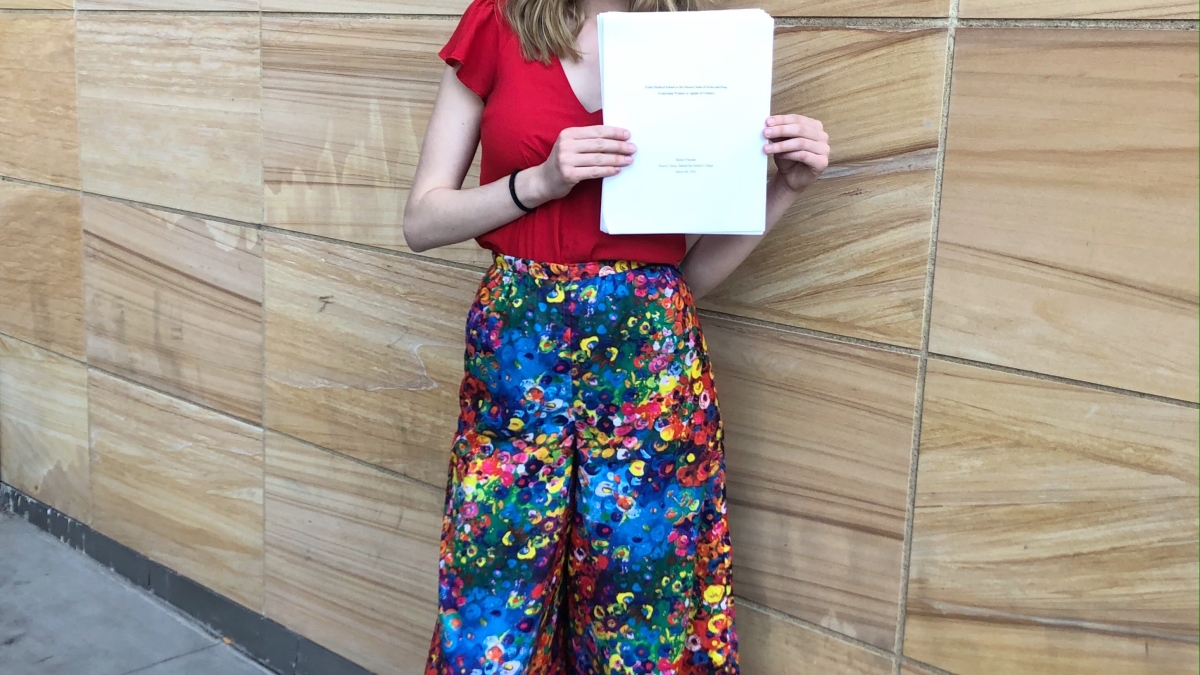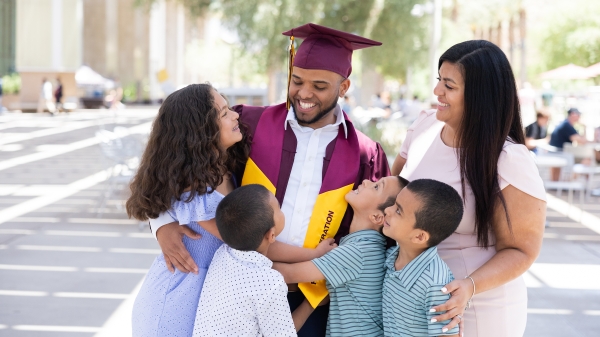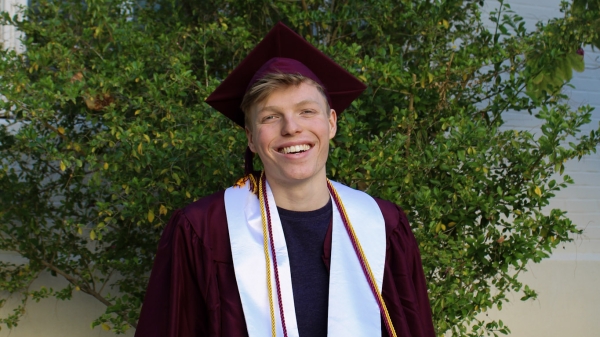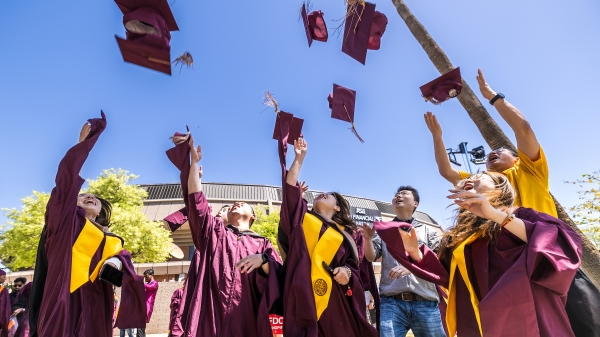Dual grad seeks to provide education to girls, women in conflict zones

Rachel Fletcher said that she has always known she wanted to help children and that in high school she was naturally drawn to social sciences. “For a long time, though, I was unsure of how to combine my interests,” she said. “I started to realize my passion for international education when I began working at ASU International Development.” Photo courtesy of Rachel Fletcher
Editor's note: This story is part of a series of profiles of notable spring 2020 graduates.
Rachel Fletcher believes that, if you have privilege, you have an obligation to use it to help others.
“Everyone deserves to have the educational opportunities that I have had, yet not everyone does,” said Fletcher, a soon-to-be dual graduate studying political science and anthropology in The College of Liberal Arts and Sciences at Arizona State University. “This is especially true in the world’s most vulnerable settings, where educational disparities are most stark. Because of this, I am incredibly passionate about building access to international education for girls and women in conflict zones.”
Fletcher said that she has always known she wanted to help children and that in high school she was naturally drawn to social sciences.
“For a long time, though, I was unsure of how to combine my interests,” she said. “I started to realize my passion for international education when I began working at ASU International Development.”
ASU International Development is the university’s platform for providing private-sector businesses and nonprofits around the world with ASU’s academic resources.
“I was placed on a project where I accompanied officials from five Malawian universities to Washington, D.C., and had the chance to discuss education challenges in Malawi and potential solutions,” Fletcher said. “I became so enthralled — it just clicked: This is what I want my career to be.”
Fletcher answered some questions about her time at Arizona State University.
Question: Why did you choose ASU?
Answer: As an in-state student, ASU was incredibly accessible due to the vast number of scholarships offered. ASU also has strong political science and anthropology departments, so I knew I would receive a strong education at ASU. I also knew that the ASU urban environment would allow me to engage firsthand with the issues that I am passionate about, including refugee rights, international policy and religious studies. For example, did you know that Arizona is one of the top 10 U.S. states resettling refugees?
Q: How has The College prepared you for success?
A: I am incredibly lucky because both of my majors, political science and anthropology, are in The College. Because of this, I have had access to so many opportunities outside of the traditional classroom. I have been able to conduct research at the Center for the Study of Religion and Conflict, the Center on the Future of War, and I completed a research project as a junior fellow at the School of Politics and Global Studies. Through The College, I have also had access to incredible internships at the United States Congress, on a congressional campaign, and at a nonprofit dedicated to eradicating child trafficking in Winneba, Ghana, to name a few.
Q: Which professor taught you the most important lesson while at ASU?
A: I can’t pick just one! I owe a great deal of gratitude to Dr. Souad Ali, Dr. Henry Thomson, Dr. Jeffrey Kubiak and Dr. Daniel Rothenberg for always supporting me and providing me with opportunities. I will say that I think Dr. Ali, as my research mentor for so much of my time at ASU and thesis adviser, has been my biggest champion throughout my studies. She always tells me two things: “Cite your sources and don’t get a boyfriend until after graduating.” Take that for what you will.
Q: What’s something you learned while at ASU — in the classroom or otherwise — that surprised you or changed your perspective?
A: I used to think that I wanted to run for office due to my interest in policy. Then, I worked in a congressional office and on the campaign trail and realized running for office is not my calling and not the most effective way for me, personally, to positively influence and create policy change. Instead, I realized I am drawn to grassroots advocacy and direct engagement with the people I seek to serve. For me, learning what I didn’t want to do was just as significant as learning what I did want to do.
Q: What’s the best piece of advice you’d give to those still in school?
A: Surround yourself with individuals who motivate you. There have been countless times where I’ve felt defeated or stressed and my friends have helped me snap out of it. That’s because they are incredibly supportive, but also because they are doing incredible things that inspire me daily.
Q: What are your plans after graduation?
A: I am going to take a year off to continue working at ASU International Development. I want to spend the time learning more about the subtleties of international education and the different challenges in the field. After my year off, I hope to go to graduate school for a joint JD/ master’s degree in international education.
More Sun Devil community

Starbucks, Uber commemorate milestone for ASU grads
For a growing number of Arizona State University students, their life trajectories have been vastly improved by the companies…

ASU grad blends art and entrepreneurship, setting sights on allergy-focused startup
Editor’s note: This story is part of a series of profiles of notable spring 2024 graduates. Tristan Tierce has spent much of his…

Advice to spring 2024 grads: 'Spend your time creating new things'
The largest graduating class in the history of Arizona State University celebrated their new degrees with “Pomp and Circumstance…